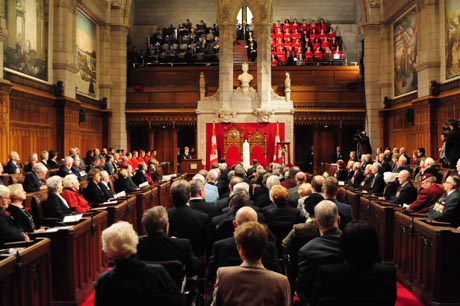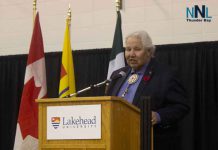OTTAWA – “Canadians have shown tremendous strength in the face of the COVID-19 pandemic and we know that it is still here with us. Our Government remains committed to helping Canadians through this extremely difficult time. Parliamentarians of all stripes have come together to make sure Canadians continue to have the income supports they need and that we continue to provide sufficient resources for the fight against COVID-19,” says Deputy Prime Minister and Minister of Finance, Chrystia Freeland.
Throughout the pandemic, the Government of Canada has always put the health and well-being of Canadians first. Beginning last spring, the Canada Emergency Response Benefit (CERB) has helped almost 9 million Canadians and their families make ends meet and stay safe. While many Canadians have been able to go back to work safely, there continue to be many who are unable to find work or are underemployed due to the ongoing public health crisis. This fall, as the Government transitions from the CERB to a flexible and more accessible Employment Insurance (EI) program, it is also continuing to support workers in need who do not qualify for EI, and providing new support that will allow Canadians to stay home when they are sick.
Today, the COVID-19 Response Measures Act (formerly Bill C-4) received Royal Assent. The House of Commons approved the motion and sent it to the Senate. The Upper House approved it and the Governor General has signed it into law. This legislation creates three new temporary recovery benefits to support Canadians who are unable to work for reasons related to COVID-19. These benefits will be in place for one year beginning September 27, 2020, as we work to build back a stronger, more resilient economy.
Canadians will be able to apply through the Canada Revenue Agency (CRA) for the following benefits as of Monday, October 5:
- A Canada Recovery Caregiving Benefit (CRCB) of $500 per week for up to 26 weeks per household for workers unable to work for at least 50% of the week because they must care for a child under the age of 12 or family member because schools, day-cares or care facilities are closed due to COVID-19, or because the child or family member is sick and/or required to quarantine or is at high risk of serious health implications because of COVID-19 ; and,
- A Canada Recovery Sickness Benefit (CRSB) of $500 per week for up to a maximum of two weeks, for workers who are unable to work for at least 50% of the week because they contracted COVID-19, self-isolated for reasons related to COVID-19, or have underlying conditions, are undergoing treatments or have contracted other sicknesses that, in the opinion of a medical practitioner, nurse practitioner, person in authority, government or public health authority, would make them more susceptible to COVID-19.
These benefits will be paid on a weekly basis, meaning Canadians will have to reapply each week they are eligible.
Effective October 12, the CRA will open the applications for the Canada Recovery Benefit, which will provide eligible workers with $500 per week for up to 26 weeks for those who have stopped working and who are not eligible for EI, or had their employment/self-employment income reduced by at least 50% due to COVID-19. This benefit will be paid in two-week periods.
To support the delivery of these new recovery benefits, the CRA will provide a simple and efficient attestation-based application process similar to the one that millions of Canadians relied on to access CERB payments. Eligible individuals will be able to apply for recovery benefits online through the CRA’s My Account portal or by phone through the CRA’s automated phone line.
The Government is committed to having safeguards in place to protect Canadians from fraud and to keep the system secure. To this end, the CRA is taking steps to implement additional verification and security measures up-front, to help ensure that it delivers benefit payments only to individuals who are entitled to receive them. In some cases, individuals will be asked to provide additional information so that their eligibility can be verified before their application is processed.
More information on how Canadians can get ready to apply can be found on the new Canada Recovery Benefits web pages.
As part of the Act, the Government of Canada is also extending the application of the Public Health Event of National Concern Payments Act (PHENCPA) to December 31, 2020. PHENCPA has made it possible for the federal government to help million of Canadians and hundreds of thousands of Canadian businesses get through this crisis. This extension will allow the Government to continue investing in vaccines and therapeutics, to continue to support testing and tracing, and to procure personal protective equipment for essential workers. It will also allow us to continue to support the capacity of our health-care systems. This Act is essential in ensuring ongoing support for Canada and Canadians as we fight the second wave of this virus.
Together, the new measures in this legislation ensure Canadians who are unable to work due to COVID-19 continue to get much needed support, and so we continue our strong response – putting the health and safety of Canadians first.




